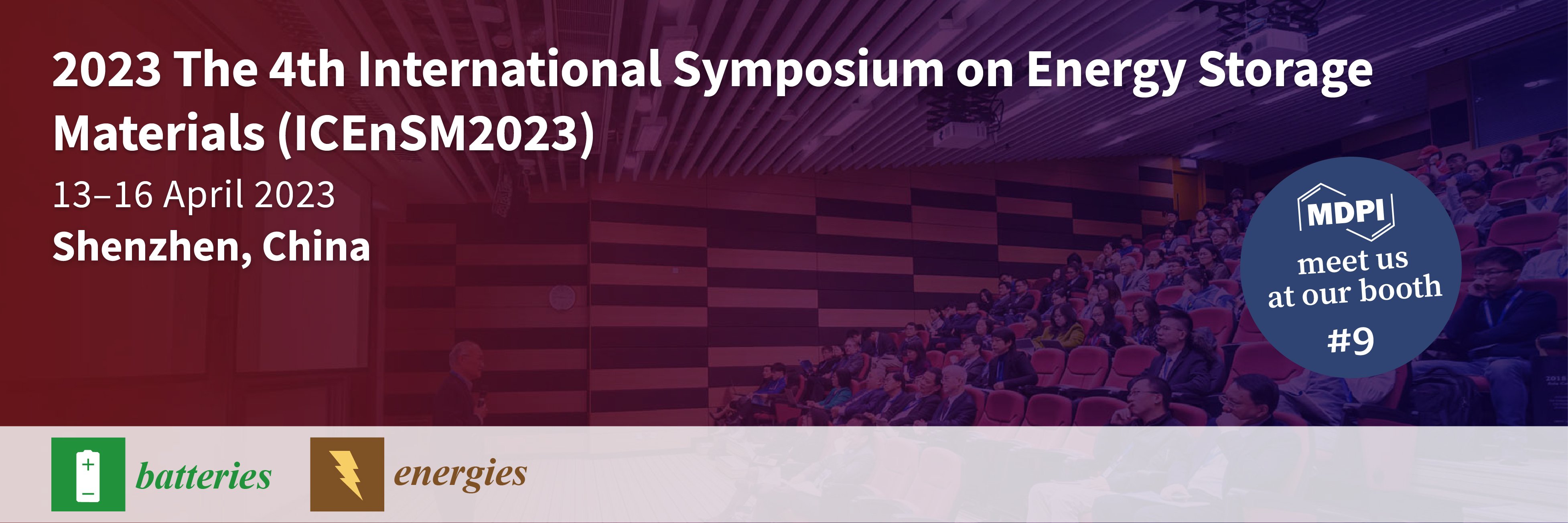
Journal Menu
► ▼ Journal Menu-
- Molecules Home
- Aims & Scope
- Editorial Board
- Reviewer Board
- Topical Advisory Panel
- Instructions for Authors
- Special Issues
- Topics
- Sections & Collections
- Article Processing Charge
- Indexing & Archiving
- Editor’s Choice Articles
- Most Cited & Viewed
- Journal Statistics
- Journal History
- Journal Awards
- Society Collaborations
- Conferences
- Editorial Office
Journal Browser
► ▼ Journal Browser-
arrow_forward_ios
Forthcoming issue
arrow_forward_ios Current issue - Vol. 30 (2025)
- Vol. 29 (2024)
- Vol. 28 (2023)
- Vol. 27 (2022)
- Vol. 26 (2021)
- Vol. 25 (2020)
- Vol. 24 (2019)
- Vol. 23 (2018)
- Vol. 22 (2017)
- Vol. 21 (2016)
- Vol. 20 (2015)
- Vol. 19 (2014)
- Vol. 18 (2013)
- Vol. 17 (2012)
- Vol. 16 (2011)
- Vol. 15 (2010)
- Vol. 14 (2009)
- Vol. 13 (2008)
- Vol. 12 (2007)
- Vol. 11 (2006)
- Vol. 10 (2005)
- Vol. 9 (2004)
- Vol. 8 (2003)
- Vol. 7 (2002)
- Vol. 6 (2001)
- Vol. 5 (2000)
- Vol. 4 (1999)
- Vol. 3 (1998)
- Vol. 2 (1997)
- Volumes not published by MDPI
Need Help?
Announcements
7 March 2023
Displaying Co-Authors’ Email Addresses on the Webpage of Published Papers
MDPI is pleased to announce that we now display the co-authors’ email addresses in addition to the corresponding author’s email address on the webpage of published papers, protected by Captcha. For more information about this change, please visit the journal’s instructions for authors page.
We believe this change will facilitate academic discussions and advance our cause of open science and research. The corresponding authors are responsible for communicating with their co-authors and indicating in our system (https://susy.mdpi.com/) if co-authors would prefer for their email addresses not to be displayed.
7 March 2023
Meet Us at the 19th National Youth Conference on Catalysis, 9–13 April 2023, Nanjing, China

MDPI will be attending the 19th National Youth Conference on Catalysis (19NYCC), hosted by the Catalysis Committee of the Chinese Chemical Society and Nanjing University, which will be held from 9 to 13 April 2023 in Nanjing, China. The conference will be held at the Nanjing International Youth Conference Hotel, 8 Yecheng Road, Jianye District, Nanjing, Jiangsu Province. More than 100 outstanding young scholars in catalysis science and technology and related fields are invited to make conference reports, keynote reports, and invitation reports. A total of 1200 delegates are expected to attend.
The theme of this conference is “Youth Catalysis in the Two-Carbon Era - From Science to Application”. The conference establishes a platform for young catalysis workers in China (under the age of 45) to learn and communicate. It aims to show the latest progress and achievements of young Chinese catalysis workers in basic and applied research in the field of catalysis science as well as technology and discuss the opportunities, challenges, and future development directions faced by the catalysis field. It also aims to further promote the development of catalytic science and technology in China.
The main topics of the conference include the following: catalytic mechanism and theoretical calculation; new catalytic materials; catalytic advanced characterization; heterogeneous catalytic reactions; photo/electrocatalysis; small-molecule catalytic conversion; green catalysis; environmental catalysis; and industrial catalysis.
The following MDPI journals will be represented:
If you are attending this conference, please feel free to start a conversation with us. Our delegates look forward to meeting you in person and answering any questions that you may have. For more information about the conference and our booth, please visit https://www.chemsoc.org.cn/meeting/19NYCCC/.
16 February 2023
Increasing Visibility for Preprints.org – Clarivate adds the Preprint Citation Index to the Web of Science

On 9 February 2023, Clarivate, a global leader in providing trusted insights and analytics, added the Preprint Citation Index to the Web of Science platform, streamlining the research process by allowing researchers to locate and link to preprints alongside other trusted content in the database.
The Preprint Citation Index will act as a bridge to connect cutting-edge preprints with peer-reviewed journal articles published within the Web of Science Core Collection. Alerts can be easily set to monitor new research across several repositories and authors will also be able to include preprints on their Web of Science Research Profile to more accurately display their various research outputs.
As of its launch, the Preprint Citation Index will provide nearly two million preprints from various repositories, including MDPI’s own Preprints.org.
MDPI's Preprints Platform – Preprints.org
To advance Open Science and the fast dissemination of research, MDPI offers researchers a free multidisciplinary preprint platform. Preprints.org accepts submissions from all research areas and offers authors high visibility, permanent archiving, article-level Metrics and immediately citable content by assigning a Digital Object Identifier (DOI) to all preprints.
During submission to any MDPI journal, authors have the option to share their research as a preprint. After an initial screening, the manuscript is available online in 48 hours or less. Once online, preprints can be downloaded, shared, commented on, and cited, providing authors maximum visibility.
We invite you to join the ranks of the over 100k researchers using Preprints.org and share your research.
For more information, please visit Preprints.org.
9 February 2023
Meet Us at the Fourth International Conference on Energy Storage Materials, 13–16 April 2023, Shenzhen, China

Conference: The Fourth International Conference on Energy Storage Materials
Date: 13–16 April 2023
MDPI will be attending the Fourth International Conference on Energy Storage Materials as the exhibitor. With the theme of advanced energy storage materials and energy storage devices, this seminar invites well-known scholars and industry professionals from around the world to discuss the latest research progress and industrial development status and trends in advanced energy storage materials and devices from academic and industrial perspectives in order to promote the application process of energy storage materials and energy storage devices. The conference is held annually.
The following MDPI journals will be represented:
- Batteries;
- Energies;
- Sustainability;
- Materials;
- Electronics;
- Nanomaterials;
- Inorganics;
- Crystals;
- AppliedChem;
- Membranes;
- Electrochem;
- Applied Sciences;
- Metals;
- Molecules.
If you are attending this conference, please feel free to start a conversation with us at our booth: #9. Our delegates look forward to meeting you in person and answering any questions that you may have. For more information about the conference, please visit http://www.icensm.ac.cn/eindex.html.
6 February 2023
Obituary—Prof. Dr. Farid Chemat

It is with great sadness that we announce the passing of Prof. Dr. Farid Chemat, Editor-in-Chief of Molecules, in January 2023.
Our collaboration with Prof. Dr. Chemat began in 2015 when he served as a Guest Editor for a successful Special Issue in Green Chemistry. His approachable and charismatic personality led us to invite him to join the editorial board in 2017. Shortly after, he was promoted to Section Editor-in-Chief for Green Chemistry in 2018. Subsequently, he actively strived for the development of the section and published several successful Special Issues. We were honored to welcome him as the Editor-in-Chief for Molecules in January 2021. During his tenure as Editor-in-Chief, he worked closely with the editorial members and staff to guide the journal through its development and growth. He was one of the undisputed pillars of the journal. We were privileged to have his enthusiasm guiding us through the journal’s milestones. His contributions to the scientific community are acknowledged and his legacy will be preserved within the journal.
Prof. Dr. Chemat was a full chemistry professor and laboratory director for green extraction techniques of natural products (GREEN) at the Université d’Avignon et des Pays de Vaucluse, France. After earning his Ph.D. in 1994 from the Institut National Polytechnique de Toulouse, he worked in postdoctoral research with Prolabo-Merck (1995–1997) and as a senior researcher at the University of Wageningen, The Netherlands (1997–1999). He then moved to the University of La Réunion, France as an Assistant Professor. Since 2006, he held a Professor of Chemistry at Université d’Avignon, France.
His research focused on innovative and sustainable extraction techniques (i.e., microwave, ultrasound, and bio-based solvents) for different fields such as food, pharmaceutical, and cosmetic applications. His research activities were decorated with more than 200 scientific peer-review papers, books, and patents.
His death is a significant loss to the academic and scientific community and anyone close to him. We offer our deepest condolences to his family, friends, and colleagues.
Molecules Editorial Office
22 December 2022
Special Issue Mentor Program
We are pleased to announce the launch of a new initiative—the MDPI Special Issue Mentor Program.
This program will enable early career researchers (who must hold a Ph.D. in a related field) to experience editing a Special Issue in MDPI journals, under the mentorship of our experienced Editorial Board Members or other experienced scientists. The mentor program will provide an excellent opportunity for early career scientists to gain editorial experience, and to cultivate their ability to edit scientific research.
The mentee’s responsibilities include:
- Proposing a Special Issue title and assisting the mentor in preparing a summary (around 200–400 words) and 3–10 keywords describing the background, importance, and goal of the Issue;
- Writing a brief promotion plan for the Special Issue;
- Preparing a list of scholars who may be interested in the Issue and personally e-mailing invitations on behalf of Guest Editors;
- Writing an editorial for the online Special Issue together with the mentor.
The mentor’s responsibilities include:
- Conducting a final check before the Special Issue is published online;
- Performing editorial control of the Special Issue and quality control of the publications, both of which must be carried out in a timely manner;
- Providing suggestions to younger scholars if they have any doubts or concerns regarding submissions;
- Organizing video calls with young scholars and the Editorial Office regularly to discuss problems and improvement suggestions for the Special Issue;
- Making and submitting decisions regarding submissions with the assistance of mentees.
Certificates and awards:
After the Special Issue closes, the Editorial Office will provide official certificates for all the mentors and early career researchers.
If you are interested in this opportunity, please send your Special Issue proposal to the Editorial Office of a journal you choose, and we will discuss the process (i.e., mentor collaboration, Special Issue topic feasibility analysis, etc.) in further detail. The full list of MDPI journals is as follows: https://www.mdpi.com/about/journals.
In addition to the new Special Issue Mentor Program, we will continue to welcome all Special Issue proposals focusing on hot research topics.
21 December 2022
Interview with Prof. Dr. Xiaoguang Lei—Winner of the Molecules 2022 Tu Youyou Award

Name: Prof. Dr. Xiaoguang Lei
Email: xglei@pku.edu.cn
Affiliation: Peking-Tsinghua Center for Life Sciences, Peking University, China
Warm congratulations to Prof. Dr. Xiaoguang Lei for winning the Molecules 2022 Tu Youyou Award.
Prof. Dr. Xiaoguang Lei is currently the Boya Distinguished Professor of Chemistry and Chemical Biology at Peking University. His laboratory at Peking University conducts research on the interface between chemistry and biology. He focuses on the function-oriented synthesis of structurally complex and bioactive natural products and systematically uses bioactive small molecules (either natural products or unnatural compounds) to study their biological functions, elucidate molecular mechanisms of the essential biological pathways, and develop novel therapeutic agents for currently intractable human diseases, such as cancers and infectious diseases. In addition, he has been exploring the biosynthesis of plant-derived bioactive natural products and developing efficient chemoenzymatic approaches to access these complex molecules. During his career to date, Prof. Dr. Lei has distinguished himself with numerous high-quality contributions in diverse areas of natural product synthesis, chemical biology, and drug discovery. His investigations into the molecular details and mechanisms at the interface between chemistry and biology have led to novel discoveries with potentially significant consequences for molecular medicine.
We conducted an interview with Prof. Dr. Xiaoguang Lei regarding his research and achievements. We hope you enjoy the interview.
14 December 2022
"Thanks a Million!" – One Million Articles Published in MDPI Journals
MDPI has just become the first open access (OA) publisher to reach the milestone of one million articles published. That is one million articles freely available to all, to circulate and build upon! We are proud to share this special moment with the global scientific community.
This landmark has been reached thanks to the immeasurable support of more than 600,000 expert reviewers, 66,000 editorial board members and 6700 hard-working colleagues across MDPI’s global offices.
Within more than 25 years of publishing, our journals received 2.1 million manuscripts and generated 4.6 million peer review reports to get to one million papers published.
Reaching the milestone of one million articles published reinforces our mission to remove any existing barriers and to make scientific research accessible to all. Since its inception, MDPI’s goal has been to create reliable processes to make science open. This is a path towards facilitating the dissemination of novel insights in scientific communities.
Regular feedback from authors and reviewers shows that our service is greatly appreciated and needed. At the same time, the feedback helps us identify areas for further improvement.
As it stands, a significant share of published research findings remain closed access. More than half of the content published with the most well-known legacy publishers stays behind a paywall, and that is not including articles published in hybrid OA journals, or made available months or years after publication.
A new policy announced by the US administration in August 2022 requires that, as of January 2026, all US federally funded research be made freely and immediately available after publication. While the new policy does not mandate articles be published under an open access license, it is aligned with the open access movement in removing all barriers to research. Similarly, some of the most advanced research institutions in the world intend to have all funded research articles published in open access by 2025.
MDPI is proud to be the leading agent of the transition to open access.
"Thanks a Million" to all the contributors!
12 December 2022
Recruiting Topical Advisory Panel Members for Molecules

We are currently recruiting our Topical Advisory Panel Members for Molecules (ISSN: 1420-3049). The Topical Advisory Panel is composed of established researchers and early career researchers eager to gain experience in editorial work.
The main responsibility of new members of the Topical Advisory Panel is to regularly provide support to Editors, Topic Editors and Section Board Members. Full details of the responsibilities of Topical Advisory Panel Members are available at the following link: https://www.mdpi.com/editors#Supporting_Editor_Responsibilities.
The benefits of Topical Advisory Panel Members include the following:
- The opportunity to publish one paper per year with a discount in Molecules as well as potential discounts for additional papers you invite;
- A certificate of recognition for your position;
- Additional sponsorships for conferences organized by Topical Advisory Panel Members of Molecules;
- Travel grants for conferences that you attend or organize.
To qualify as a Topical Advisory Panel Member, applicants must:
- Have expertise and experience in a field related to Molecules;
- Have at least six published papers in the last 5 years as a first author or corresponding author;
- Currently hold an independent research position in academia or a government institute.
If you are interested in this position, please apply via the following link: https://www.mdpi.com/journal/molecules/topical_advisory_panel_application, or send an email to the Editorial Office (molecules@mdpi.com) with your academic CV.
We look forward to hearing from you.
Molecules Editorial Office
8 December 2022
MDPI Sustainability Foundation: New Look and Nominations for the 2023 Sustainability Awards Now Open

We are pleased to announce that the website of the MDPI Sustainability Foundation has been revamped! For the past couple of months, our UX UI team and front-end developers have been working hard to launch the website in time for the opening of the Sustainability Awards nominations.
The website is not the only thing that has had a remodeling. Indeed, the format of the Emerging Sustainability Leader Award (ESLA) has been updated. ESLA is now a competition open to individual researchers or start-ups founded by researchers under the age of 35. Nominee applications will go through 2 rounds of selection until the final 3 are decided. The finalists will then be invited to give pitch presentations during the Award Ceremony to win either first place (10,000 USD) or runner-up (2 x 5000 USD).
The World Sustainability Award, on the other hand, remains the same: a total prize money of 100,000 USD is up for grabs by senior individual researchers or groups of researchers from the international research community.
Nominations for both the World Sustainability Award and the Emerging Sustainability Leader award are now open! Check out our new website for more information on how to nominate.




